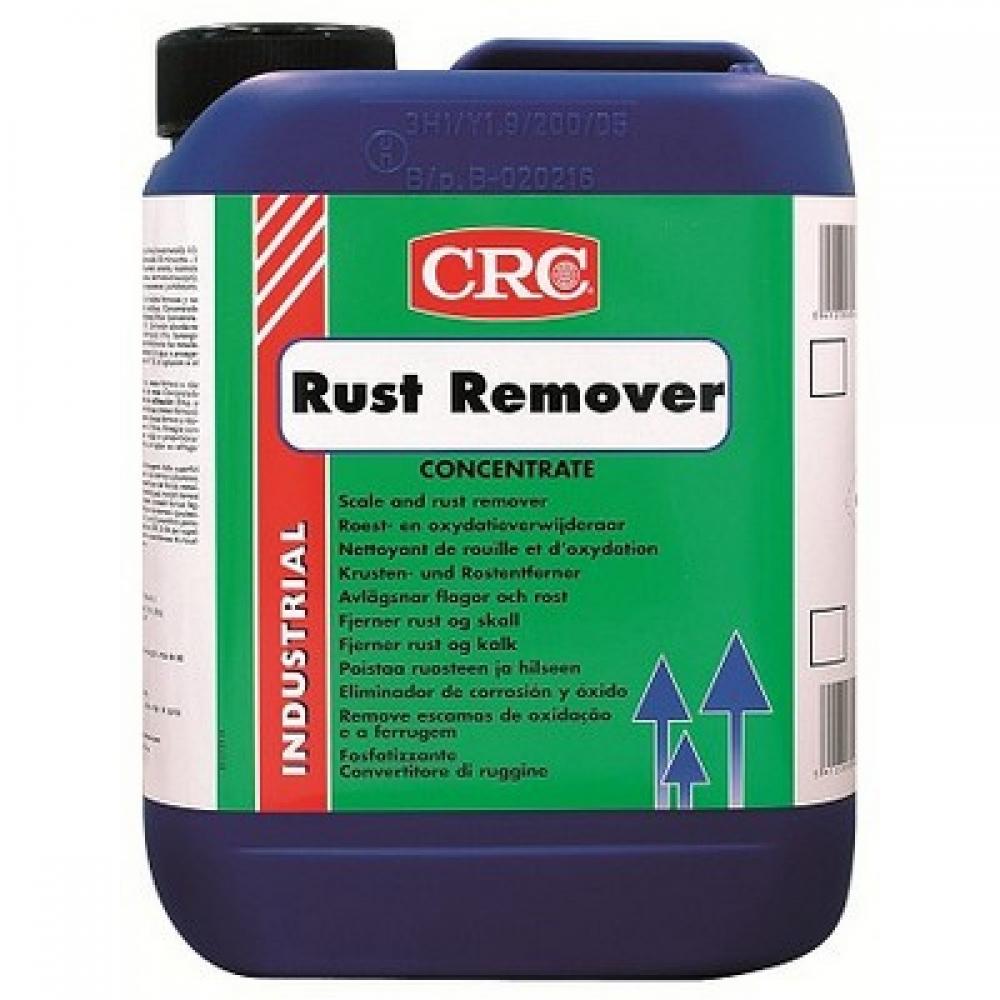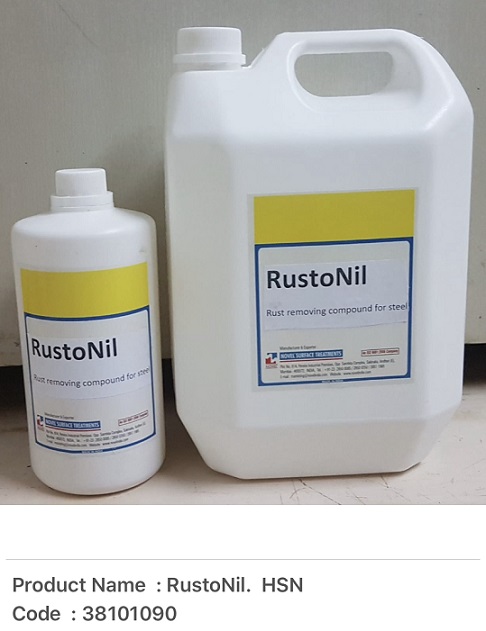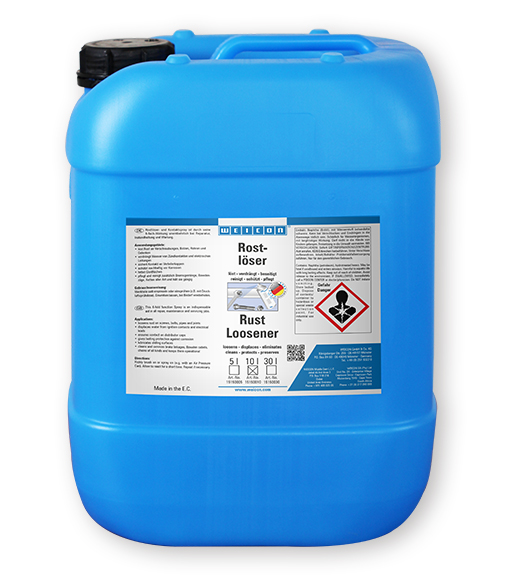What is Rust and How to Remove It From Metal
Should you utilize iron or steel parts or equipment, you’ve nearly certainly had to deal with rust. Rust can ruin the metal parts you require, cause machines to malfunction, and create safety hazards. There’s not enough time in the afternoon to sand and then dirt rust off, however, you still need your metal parts and machinery in top form. In this informative article, we will explain how different types of industrial rust removal acids and also water-based solutions work, and that means it’s possible to find the ideal product for your requirements.
Which Rust Remover If I Use?
Now you have some familiarity about how different industrial rust remover products work, it will be easier to choose the right one. Look at the active ingredients as well as the recommended safety and disposal guidelines to find out whether the item utilizes strong acids, weak acids, or a acid-free, water-based formulation. Follow the merchandise application guidelines attentively; leaving that the rust remover on too long can damage the inherent metal, however, not leaving it long could lead to lousy outcomes. With the perfect option, it’s possible to effectively eliminate rust and attract rusted metal parts and equipment back to like-new condition.
What Exactly Is Rust?
Rust Occurs when iron and other ferrous (comprising iron) metals). If water, oxygen, and iron meet, a subtle and invisible chemical procedure occurs that causes electrons to manoeuvre and turns iron into iron oxide, also known as rust. Salt water from coastal regions or out of winter road salt, as well as acid rain in certain industrial or urban parts, are famous contributors which accelerate oxidation.
Do All Metals Rust?
Oxidation Is 1 kind of corrosion that could happen on metals, and many metals suffer with oxidation. However, rust is special to metals including iron, which comprises all sorts of iron (wrought iron, cast iron) and steel (carbon steel, stainless steel). Other non-ferrous metals including aluminium, lead or aluminium, can corrode, but they don’t actually rust.
Thus what does this mean for industrial rust removal? Recognizing what causes rust will help understand ways to do away with it, and that methods are better than others, and also the reason why.
Are Strong Enough Safe for Removing Rust?
Even When vitamin acids have been diluted in warm water or other compounds they have been dangerous to work together and may badly damage skinand irritate the lungs, and cause additional health issues without proper security measures. These compounds are toxic and corrosive, therefore they have to be disposed safely, specially in huge quantities.
Industrial Rust removal products including powerful antioxidants might be excellent for serious rust Conditions that have to be solved immediately. Nevertheless, these goods need to be Carefully tracked and safety measures carefully tracked. Proper Venting, safety gloves, goggles, and attentive application are all crucial to Keeping users secure.
What Dissolves Rust Most Useful?
There Are lots of industrial rust removal products which may do the job with the metal parts or machines, and also that which melts rust top depends upon several aspects. The seriousness or amount of rust, the sort of metal part, the dimensions and contour of this part, the amount of parts and also the form of centre you’ve got will impact what dissolves rust most useful. It is vital to think about safety, disposal of this rust removal procedure, timing and other aspects.
Just how Can Powerful Enough Work For Industrial Rust Control?
Strong Acids and strong alkalis can remove rust fast, nevertheless these caustic compounds pose many safety and health risks and require that an individual detect rigorous security measures. Strong acids may dissolve rust, however they’ll even dissolve finishes, and on occasion the metal itself. Hydrochloric acid (that can also be called muriatic acid within its diluted form), in addition to lactic acid and lactic acid might be utilised in rust elimination formulas utilizing powerful antioxidants. All these are amino acids, plus they’re exceptionally corrosive, specially in concentrated types. Strong alkalis work similarly, but on the other conclusion of the pH spectrum.
Strong Acids operate by trapping rust. A number of rust removal products are gel formulations. Once implemented, in the event the gel remains in the metal overly much time, it is going to begin to dissolve it, then resulting in pitting. While vitamin acids wash from the outer coating of rust, they also place the inherent metal at a reactive condition, which makes it vunerable to”flash rusting” unless it’s otherwise sealed or neutralized.
How Do Irregular Fasting Work for Industrial Rust Removal?
Despite their name, a weak acidity doesn’t mean a feeble reaction. Since weak acids occur naturally in the setting, they have been less hazardous compared to the mineral acids recorded above. There are certainly a variety of weak acids that’ll react with rust and also remove it, and each one works a bit differently. Tannic acid, vitamin lactic acid, uric acid, also Ethylenediaminetetraacetic acid (EDTA), may be applied as a industrial rust remover. These acids are naturally occurring in vegetables, nuts , and fruits, or used as an additive in medicines and foods.
Weak acids utilize a process very similar to powerful antioxidants, except their reaction will be more slow and less explosive. Though polyunsaturated acids can continue to be harmful in concentrated types, they have been no where near as dangerous as vitamin acids. Industrial rust removers employing weak acids are usually found in gel or bath formulas.
Are Weak Antioxidants Safe for Removing Rust?
Weak acids–such as oxalic acid–may be toxic at an extremely concentrated form, but they’re naturally occurring and carbon-based, so they’re less toxic and less corrosive than mineral acids. Nevertheless, caution is required when working with weak acids since they present security problems both for humans and the environment. Since the compound process is different from vitamin acids, lactic acid along with other amino acids lower the probability of metal flash rusting, however, it is still a possibility.
How Can Acid Free, Water-Based Solutions Work with Industrial Rust Control?
It’s not only acids that possess the capacity to eliminate rust. Acidfree, water-based rust industrial rust removers utilize a marginally different compound process to respond specially with rust and take it off by the metal. While acids break down and dissolve rust, acidfree, water-based rust removers pull on the rust away or lift it out of the metal. This approach is generally accomplished through chelation.
Chelation causes molecules over the rust removal method to bond with the rust and draw it away from the inherent metal and in to a substrate. Many times, that entails using a rust removal tub . The rusted metal parts are all soaked in the tub allowing the solution to draw or lift the rust off of the metal and to the bath, and also the rusted part comes out clean. These industrial rust removal products and services are also extended in a gel form.
Are Acid-Free, Water-Based Solutions Safe to Removing Rust?
Acid free, water-based solutions are one of the safest rust removal products to both for humans and the atmosphere. Acidfree, water-based solutions use special formulas to hasten the rust removal reaction and so should be employed with caution, but acid-free, water-based services and products are generally fume free and benign if they are come in contact with skincare. For safe, environmentally-friendly rust removal that is also impressive, acid free, water-based solutions are often the best option. They are also among the safest options to the surface of the metal.

CRC Rust Remover
Removes Rust Quickly. No heavy wire brushing or sand blasting required.
Safe Acid Technology. Not harmful to skin.
Non-Corrosive. Safe to use on all metals
Non-Flammable.
No special equipment is necessary. Parts are simply submerged in the solution.
No heavy fumes or bad odors.
Zero VOC.

Rustonil Rust Remover
RustoNil is an inhibited acidic composition formulated for efficient removal of rust from steel parts without excessive attack on it. It contains special additives which suppresses fumes for better working environment, prevents itching of surface and thereby metal loss. This results in better rust removal and longer bath life.
Regular additions should be done in the working tank till Fe content reaches maximum limit of 50 gm/lit. Afterwards, the tank solution should be discarded till the solution is effective.

Weicon Rust Loosners
WEICON Rust Loosener‘s six-fold function makes it indispensible for repairs, maintenance and servicing. Thanks to its excellent creeping capacity, WEICON Rust Loosener reaches even the smallest cavities.
WEICON Rust Loosener loosens rusted and stiff parts, screws, bolts, joints and hinges, permanently protects against corrosion and oxidation, durably lubricates sliding surfaces, cleans and cares for metallic surfaces and mechanical parts and is temperature resistant from -20°C to +150°C (-4 to +302°F).



Comment (1)
This article provides a comprehensive understanding of rust and offers practical methods for removing it from metal surfaces. By emphasizing the importance of addressing rust and providing step-by-step instructions, the article equips readers with valuable knowledge to effectively maintain and restore the condition of metal objects, prolonging their lifespan and preserving their aesthetic appeal.